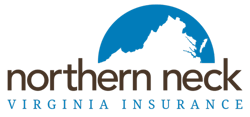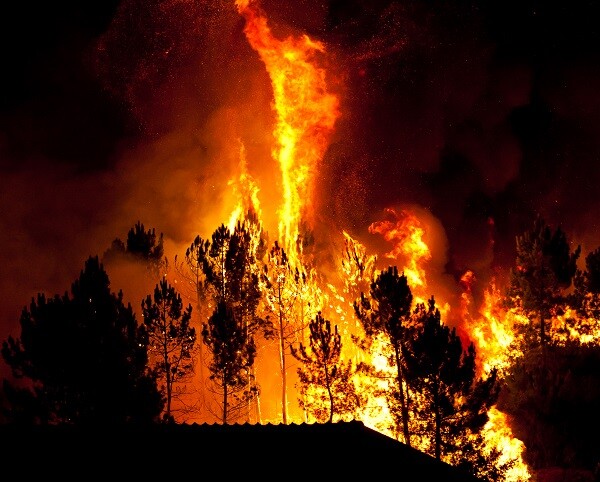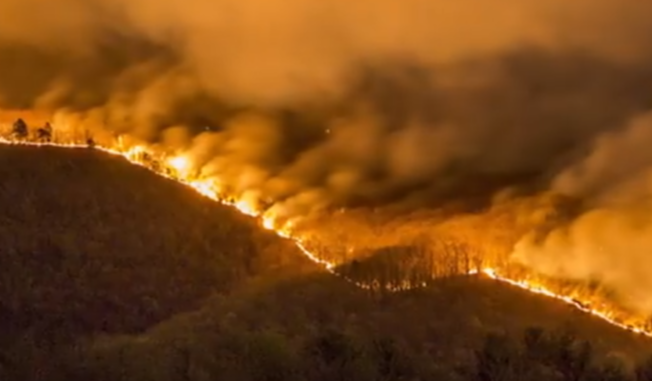
We pledge to provide straight talk from our NNINS Virginia insurance experts. Read the Northern Neck Insurance INTEGRITY PROMISE.
What causes wildfires in Virginia?
The leading cause of wildfires in Virginia is escaped burning debris and other careless outdoor burning, most commonly during the spring and fall. The DOF has designed the 4 PM Burning Law to prevent wildfires during late winter and early spring when vegetation is still dormant and can be a ready fuel source for damaging fire spread. Warm and breezy days in the fall also make conditions ripe for wildfire to spread.
Each year, more than 60 homes and other structures are damaged or destroyed by wildland fire in Virginia. In 2016, a wildfire originated in Rocky Mount, Virginia, becoming the second-largest forest fire in the history of Shenandoah National Park. Over several weeks, the fire burned over 10,000 acres of forest, closing Skyline Drive. Likely caused by humans, the fire's expansion was mainly caused by hot and dry conditions compounded by low humidity levels and gusty winds.
Just this March, wildfires burned about 7,500 acres throughout parts of Central, Southwest, and Northern Virginia due to gusty winds, low relative humidity, downed powerlines, and even a car fire igniting a brush fire, resulting in a declared state of emergency.
How are wildfires different than prescribed burning?
Wildfires differ from prescribed burning, which land managers use to keep certain types of forests, landscapes, and grasslands healthy. Prescribed burning involves setting intentional, controlled fires to remove dead and overgrown vegetation in specific areas. This strategy can help save billions of dollars and prevent large, intense wildfires that claim lives and destroy communities.
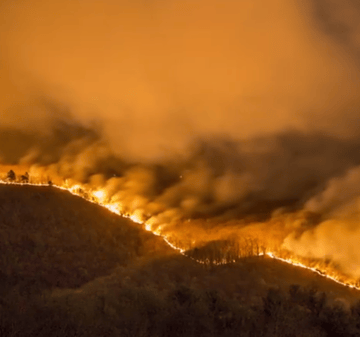
How many wildfires does Virginia have?
Over the past 10 years, there have been an annual average of 700 wildfires in Virginia, burning roughly 9,500 acres. During those annual wildfires, 60 homes are damaged or destroyed on average, but many are spared thanks to the suppression efforts of the Virginia Department of Forestry (DOF) in close coordination with local fire departments, forest industry agencies, and federal and state response agencies. While Virginia is not a state that typically experiences high occurrences of wildfires, our neighbor, North Carolina, was one of those states in 2021.
Does home insurance cover wildfire damage?
Home insurance can cover damage from a wildfire, as well as smoke damage. Coverages can include rebuilding your home and other named structures on your property, replacing your lost belongings, fixing your landscaping, and providing temporary living expenses while your home is being rebuilt. All of these have limits, so it's important to review your coverage for wildfire damage with one of our local insurance experts.
It's also very important to consider adding extended replacement cost or guaranteed replacement cost coverage to your home insurance policy to further protect your home from wildfire damage. This endorsement or add-on to your standard homeowners insurance policy can extend your limits an extra 25-50% to ensure your rebuilding costs are covered in the current economy.
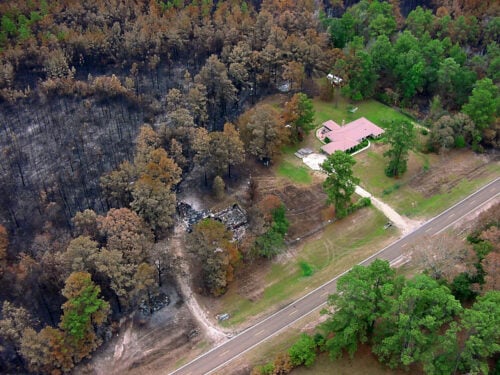 A home with defensible space vs a home without defensible space. Photo: VDOF
A home with defensible space vs a home without defensible space. Photo: VDOFHow to prevent wildfire damage to your home
The key to protecting your home from wildfire damage is having a defensible space. A defensible space is an area around your home that is cleared of vegetation and other combustible fuels to reduce or prevent spread close to your home and other structures. It can also work in the reverse function to prevent the chance of a home fire moving to the surrounding forest.
Take the following steps to protect your home from potential wildfire damage:
- Keep your gutters clean
- Keep firewood piles out of your home’s defensible space
- Trim tree branches if they overhang your house or are within 20 feet of your chimney in case of a chimney fire.
- Avoid planting trees or shrubs along your driveway.
- Keep your lawn green and cut short (3 inches) for 30 feet around your home.
- Plan, discuss, and drill an evacuation plan with your family, including your pets.
- Clear dead and dense flammable vegetation from your home’s defensible space.
- Replace conifer and evergreen shrubs with low, less-flammable plants in your home’s defensible space if your home is in a high-risk area.
- Review your home insurance policy for adequate coverage. Consult your insurance agent about the current costs of rebuilding and repairs in your area.
- Talk to your children about avoiding playing with matches or starting fires.
- Check that motorized garden equipment, such as lawnmowers and chainsaws, has approved and functioning spark arrestors.
- Be sure to have highly visible house numbers on your home and at the driveway's entrance onto the street.
- Treat flammable materials like wood roofs, decks, and siding with fire-retardant chemicals.
- Inspect power lines on your property for close branches and ask the power company to clear any branches on or close to power lines.
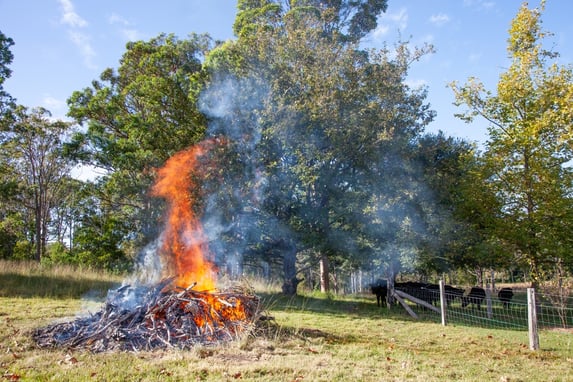
Take care when burning around your home:
- Consider composting leaves in the fall rather than burning them.
- Check the weather and local ordinances before burning your brush piles or grass in the spring.
- Hook up a hose and have a shovel handy before starting your burn pile.
- Avoid lighting fires or burning when high wind, high temperature, and low humidity are present or predicted or if the smoke and flames are blowing toward your or your neighbor’s home.
- Only dispose of ashes when they are completely cold and use a fireproof container.
Protecting your home and ensuring your home insurance adequately covers this primary asset is the best way to prepare for a wildfire in your Virginia community.
THE NORTHERN NECK INSURANCE INTEGRITY PROMISE — We pledge to provide straight talk and good counsel from our NNINS Virginia insurance experts through our blog. While we hope you find this to be a helpful source of information, it does not replace the guidance of a licensed insurance professional, nor does it modify the terms of your Northern Neck Insurance policy in any way. All insurance products are governed by the terms in the applicable insurance policy.
